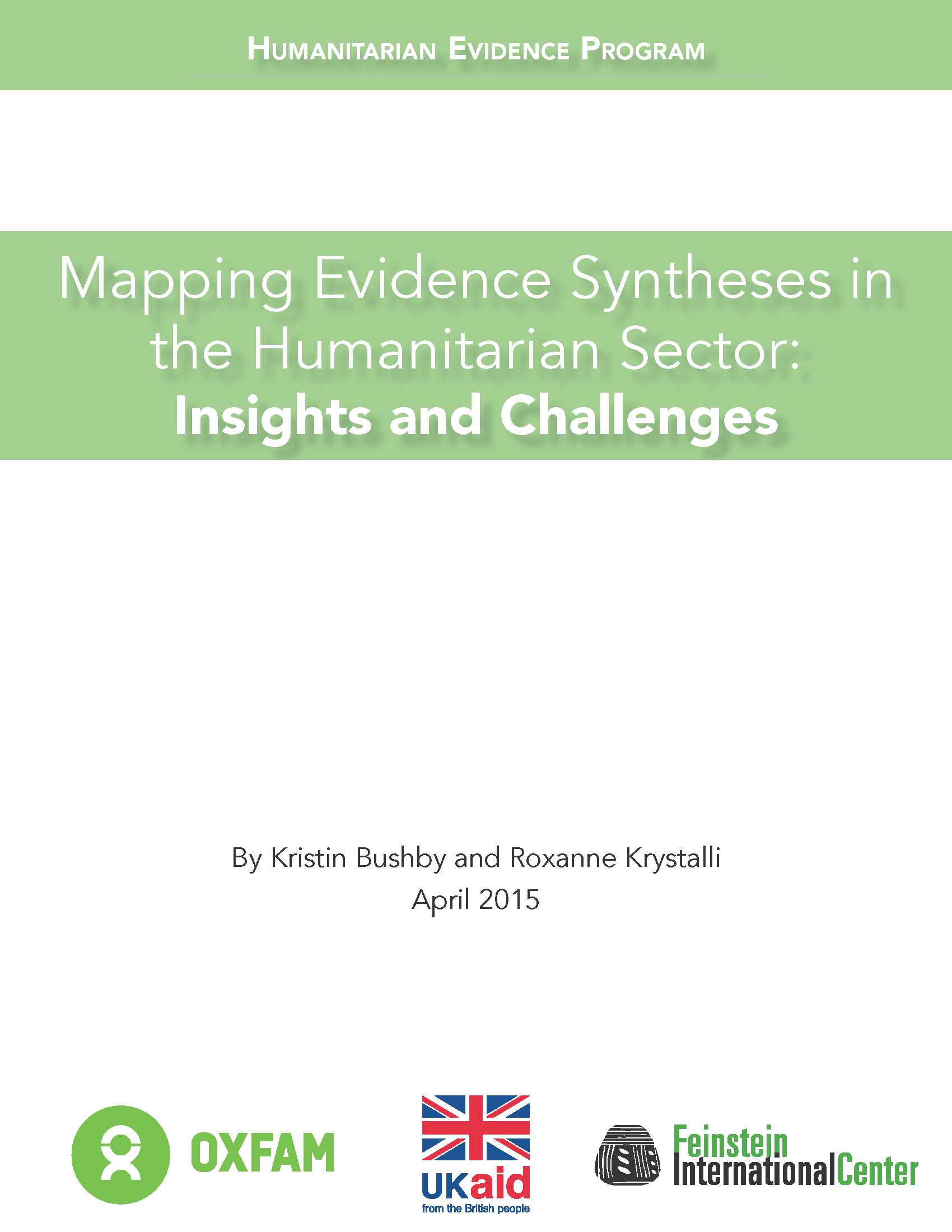This publication accompanies a catalog of existing evidence syntheses in the humanitarian sector and discusses the methodological approach to this exercise. The purpose of this study was three-fold: (a) to identify gaps in the existing humanitarian evidence base, which have informed the development of targeted research questions for evidence syntheses as part of the Humanitarian Evidence Program; (b) to inform program staff and stakeholders of existing evidence syntheses efforts in the humanitarian field, in order to improve intra-field learning; (c) to avoid duplicating existing evidence synthesis efforts in the commissioning of future program outputs.
The Humanitarian Evidence Program aims to synthesize research in the humanitarian sector and communicate the findings to key stakeholders, including policymakers, practitioners and researchers, with the ultimate goal of improving humanitarian policy and practice. The program is a DFID-funded partnership between Oxfam GB and the Feinstein International Center at Tufts University (FIC). More information is available on the Oxfam GB and FIC program websites.







